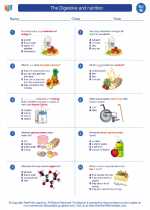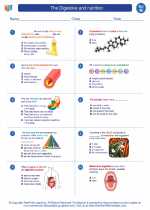Chemical Engineering
Chemical engineering is a branch of engineering that applies principles of chemistry, physics, mathematics, and economics to efficiently use, produce, transform, and transport chemicals, materials, and energy. Chemical engineers are involved in the design and operation of processes and plants where raw materials undergo chemical or physical changes to produce valuable products.
Key Concepts in Chemical Engineering
- Mass and Energy Balances: Chemical engineers use these principles to ensure that the amount of material and energy going into a process equals the amount coming out.
- Transport Phenomena: This involves the study of momentum, heat, and mass transfer, which are crucial in designing equipment and processes for moving and transforming materials.
- Chemical Reaction Engineering: Understanding the kinetics and thermodynamics of chemical reactions is essential for designing reactors and optimizing reaction conditions.
- Process Design and Control: Chemical engineers are responsible for designing efficient and safe processes, as well as developing systems to control and monitor these processes.
- Unit Operations: These are individual operations, such as distillation, filtration, and mixing, which are the building blocks of chemical processes.
Study Guide for Chemical Engineering
To excel in the field of chemical engineering, students should focus on mastering the following subjects:
- Chemistry: A strong foundation in chemistry is crucial for understanding reactions, materials, and process design.
- Physics: Knowledge of thermodynamics, fluid mechanics, and heat transfer is essential for designing and optimizing chemical processes.
- Mathematics: Proficiency in calculus, differential equations, and linear algebra is necessary for solving complex engineering problems.
- Biology: Understanding biological processes is becoming increasingly important in areas such as biotechnology and bioengineering.
- Computer Science: Proficiency in programming and simulation tools is valuable for process modeling and control.
- Economics: Knowledge of economic principles and cost analysis is important for evaluating the feasibility of engineering projects.
Additionally, gaining practical experience through internships, co-op programs, or research projects is highly beneficial for aspiring chemical engineers.
By mastering these concepts and subjects, students can develop a strong foundation in chemical engineering and prepare themselves for successful careers in the field.
.◂Science Worksheets and Study Guides Eighth Grade. The Digestive System & Nutrition

 Worksheet/Answer key
Worksheet/Answer key
 Worksheet/Answer key
Worksheet/Answer key
 Worksheet/Answer key
Worksheet/Answer key
 Vocabulary/Answer key
Vocabulary/Answer key
 Vocabulary/Answer key
Vocabulary/Answer key
 Vocabulary/Answer key
Vocabulary/Answer key
 Vocabulary/Answer key
Vocabulary/Answer key
 Vocabulary/Answer key
Vocabulary/Answer key
